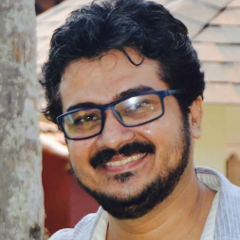Why do politicians queue up to watch cinema of the world

Mail This Article
CPI's former state secretary in Kerala, Panniyan Raveendran, often cites a German movie, 'The Last Train', in his fiery speeches against the oppression and exploitation of the ruling class. Being an ardent movie fan, Panniyan takes the audience through the movie with his deft oratory.
When asked why he was so fixated on that particular movie, he said that he could not get the movie out of his mind since he watched it in a film festival.
Left sympathisers tend to be movie buffs too. A major chunk of the delegates for the ongoing 24th International Film Festival of Kerala in Thiruvananthapuram may be workers or sympathisers of leftist parties. Yet there weren't many senior leaders of the party. But the scene seems to be changing.
CPM leader A K Balan, a state minister in charge of the Malayalam cinema industry, is a new convert. His yearly quota of films were limited to two. This year, he has watched 10 movies at the state-sponsored festival.
“I was interested in the themes of some films. I started watching and ended up watching 10 of them. You become part of an oppressed class of people when you watch some of the movies,” he said.
So why were politicians staying away from movies. “Only because they haven't watched any. Let them start watching. Everything will change,” Balan said.
Most of the politicians blame their hectic schedules for their inability to attend film festivals. For CPM leader and former Palakkad MP M B Rajesh, his surprise defeat in the just-concluded Lok Sabha election came as a blessing in disguise. He was back at the festival venues like in the years before he was first elected to Parliament.
“The film festival is a cross section of different societies and cultures around the world. These movies give you insights as a political worker,” Rajesh said. He was accompanied by party comrade and state legislator M Swaraj.
Congress national leader P C Vishnunath concurs with his political rival. “It is not like we have taken a leave from active politics to watch movies. Watching world movies is also a political activity,” said the AICC secretary from Kerala.
The Congress is also represented in the festival venues by former minister Pandalam Sudhakaran, who has been an active presence in the festival either as an organiser or a viewer.
The first film festival of India was held in Mumbai in 1952 under the guidance of prime minister Jawaharlal Nehru. He presided over the inaugural function. An ardent movie fan himself, Nehru brought in the Cinematography Act the same year and set in motion the the process to establish a National Film Institute in 1961.
Nehru also spurred the organisation of the first national film seminar in 1955, which acted as a launchpad for a slew of ideas that changed the country's movie culture. The seminar had thespians Prithviraj Kapoor and Devika Rani as directors. Indira Gandhi was the main organiser of the seminar.


